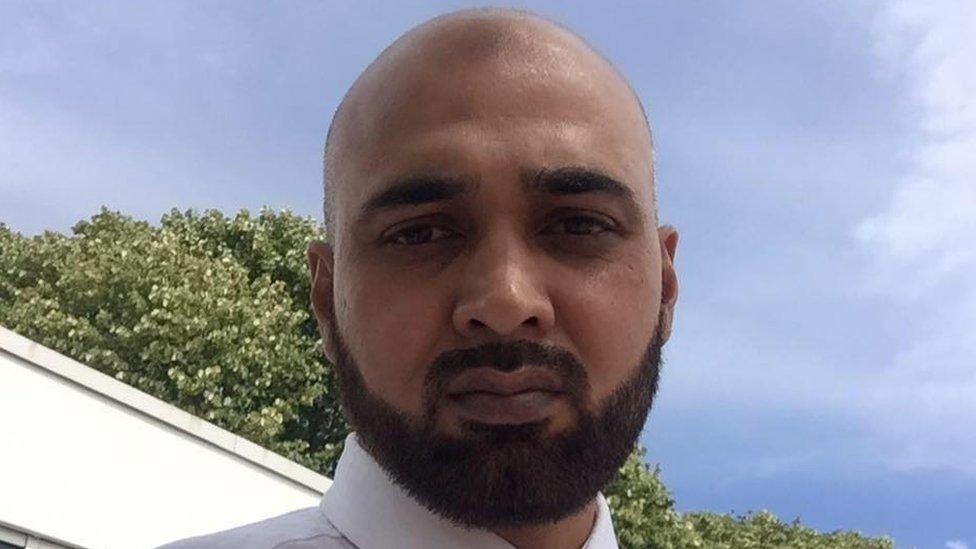What do I need to know about defibrillators?
- Published
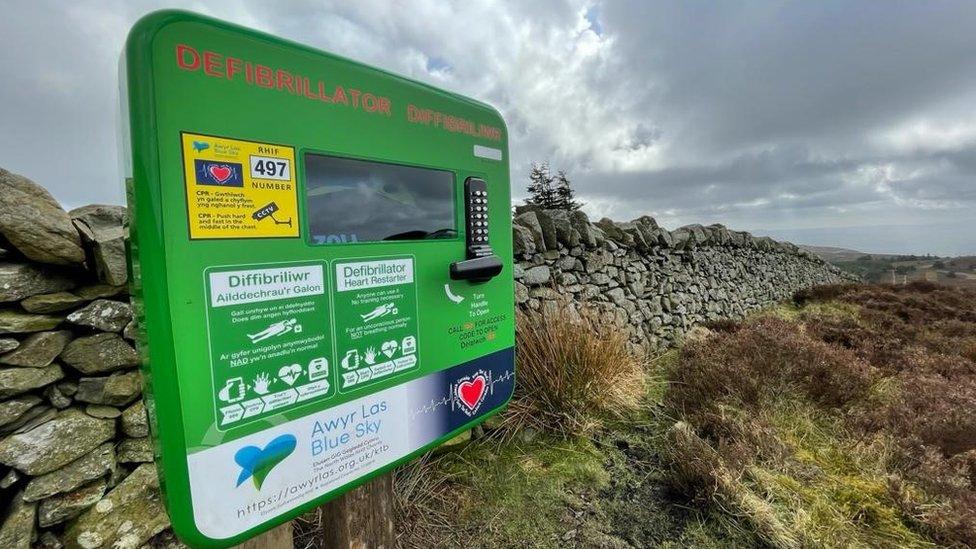
Defibrillators are not just for buildings - Moel Famau hill in north Wales has one
Following the death of a rugby player from a cardiac arrest during a match, BBC Wales is taking a closer look at the technology which can be used to save someone's life in these situations.
Sadly, in this case the presence of a defibrillator did not prevent the death of 31-year-old Alex Evans, who had been playing for Cwmllynfell RFC at Parc y Bryn in Neath Port Talbot on Saturday.
But his club mates have called for all Welsh rugby clubs to be given a defibrillator to give players and supporters a "fighting chance".
Swift use of one can mean the difference between life and death if someone suffers a cardiac arrest outside hospital.
What is a defibrillator?
Defibrillators are machines which can restore a heart's normal rhythm if it stops beating or starts to fibrillate - which basically means the muscle fibres (or fibrils) start quivering rapidly in an uncoordinated way rather than contracting regularly in a normal heartbeat pattern.
The machine will assess the heart's rhythm and status and decide if a person needs an electric shock to restore their heart function.
They are also referred to as defibs, AEDs (automated external defibrillators) or PADs (public access defibrillators).
According to the Resuscitation Council, external, every minute a person is in cardiac arrest without having CPR (cardio pulmonary resuscitation) performed and having a defibrillator used, their chances of surviving drop by 10%.
How do I use a defibrillator?
How to use a defibrillator and save a life
The first thing to make clear is you cannot harm a person by using a defibrillator or accidentally shock them. The machine makes the assessment, not you. Automatic vocal instructions will guide you through the process at all times.
Here's a quick guide:
Open the defib box - some will start speaking to you immediately, some will need you to press the on button first
Remove all clothing from the person's chest - cut or rip it off if necessary
Attach the sticky pads on either side of the chest. The pictures will show you where to place them - usually one is on the right upper chest, and one is on the left below the heart area
If someone has been performing CPR stop them doing it
The machine will assess the heart's rhythm and decide if the person needs a shock. Some will deliver it automatically; some will ask you to press a button. Stay clear of the person while the shock is delivered
Continue with CPR until an ambulance arrives or the machine asks you to stop to reassess the heart rhythm. Don't take off the pads
Do I need training to use a defibrillator?
No. Anyone can use one.
As the instructions above say, you will be guided through the process at all times by the machine itself. The important thing is to remain calm and follow the instructions.
However, if you ever attend first-aid training you will be shown how to perform CPR and how to use a defibrillator.
How do I know where a defibrillator is?
This is where it gets a bit more complicated. There is no complete national registry of defibrillators in the UK.
If someone has a cardiac arrest in the street, the quickest way to find a machine is to call 999 and the ambulance dispatcher will be able to tell you where the nearest known one is located.
A number of organisations have made efforts to compile lists viewable by the public of available machines, such as HeartSafe, external, which also sells them, and in Wales the heart charity Calon Hearts, external, also known as Welsh Hearts.
The British Heart Foundation launched a campaign a number of years ago to try to encourage all organisations which have a defibrillator to join a register called The Circuit, external.
However, at present this project is to help inform emergency and medical organisations and is not viewable by members of the public, although this may change in future.
Many workplaces and most public spaces, such as shopping centres, community venues, airports, railway stations and sporting venues, have them.
Do sports clubs have to have defibrillators?

Danish footballer Christian Eriksen collapsed on the pitch during Euro 2020 and needed immediate life-saving treatment
Under Football Association rules, all English league clubs from the Premier League, Championship, League 1 and 2 down to the fourth division of the National League have to have defibrillators. This covers Swansea, Cardiff, Newport and Wrexham, who all play in the English set-up (as does Merthyr Town but at a lower level).
All other teams come under the Football Association of Wales regulations.
They are mandatory at men's Tier 1 clubs, which total 12, the eight women's Tier 1 clubs, and 32 Tier 2 clubs.
The FAW announced a partnership with Welsh Hearts in 2018 which aimed to deliver defibrillators, equipment and training to every football club in Wales. A spokeswoman said Tier 2 clubs would be getting free training from Welsh Hearts in September.
In addition, she said many other clubs in the Welsh structure had access to defibs on match days through their use of pitches at public and council-run pitches, which had them on site.
The Welsh Rugby Union has been asked to comment on its regulations.
From 2022, schools in Wales will be expected to teach lifesaving skills and first aid under the planned new curriculum.
How can I get a defibrillator in my community?
Defibrillators are available to buy, costing between £750 to £1,500 on average.
Many community groups have fundraised to place a defibrillator in their neighbourhood, in case of use by organisations or passers-by.
Funding can be available, depending on the circumstances, through organisations such as the National Lottery's Community fund or the Prince of Wales's Charitable Fund.
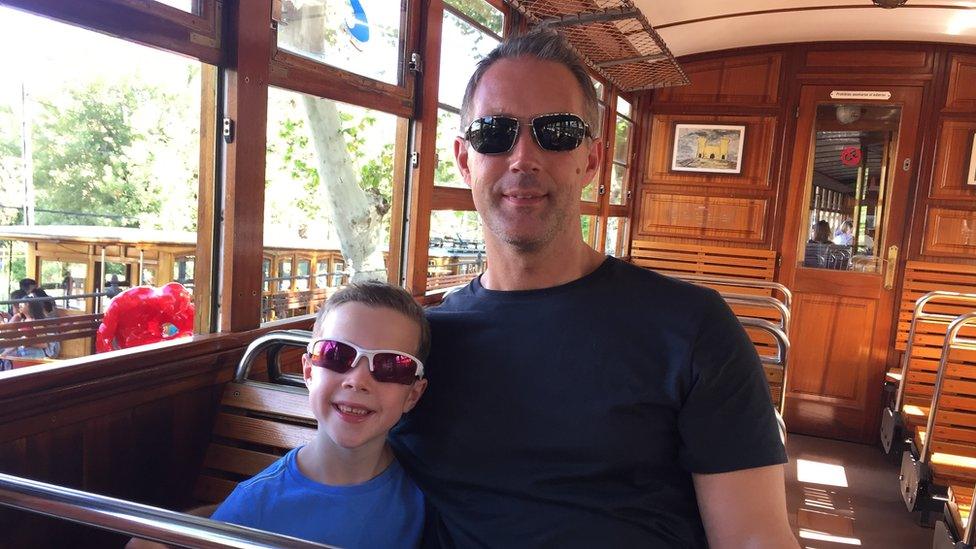
Andrew Barnett collapsed in front of his son after suffering a cardiac arrest
Andrew Barnett said staff at a local leisure centre saved his life through swift use of a defibrillator while he played a Christmas special match with parents and children in Cardiff in 2018.
Explaining what happened, he said: "I was running down the pitch and literally just face-planted.
"I didn't know anything about it, there was nothing, no signals before - that's probably the most worrying part of it, that you don't get any sort of indication it might happen."
Mr Barnett has backed publicly available defibrillators, saying two staff members at a local leisure centres had used theirs to come to his aid while someone else gave him CPR.
"The defibs are worth their weight in gold."

RUGBY LIONS OF '74: Undefeated, but against the backdrop of condemnation for the apartheid regime
SOCIAL MEDIA & SPORT: Vicki Blight investigates the impact of social media in sport

Related topics
- Published23 August 2021
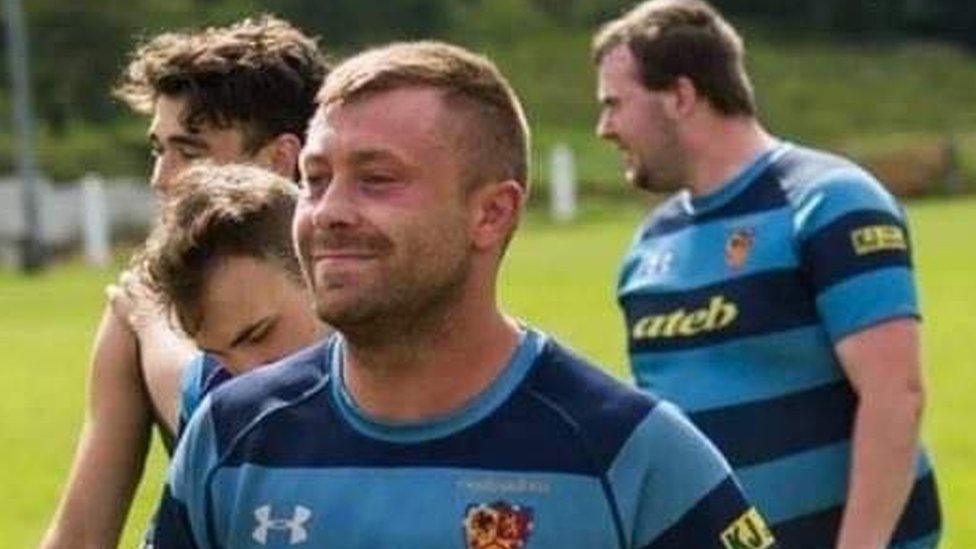
- Attribution
- Published20 July 2021
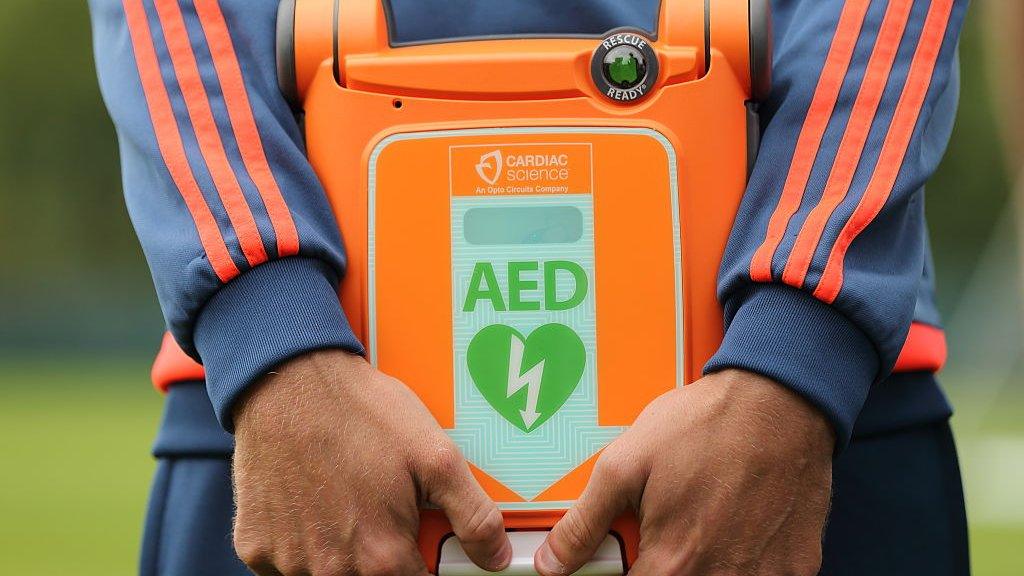
- Published3 March 2021
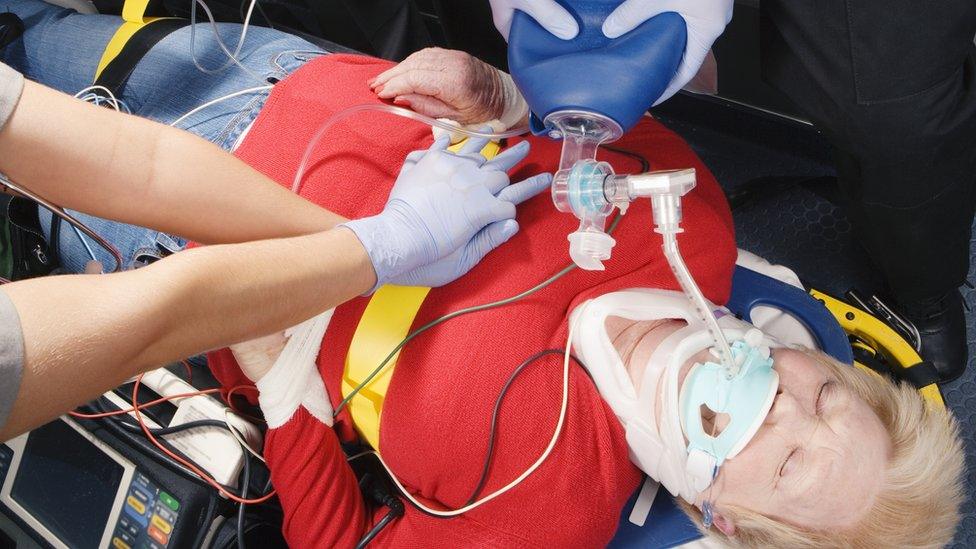
- Published14 June 2021
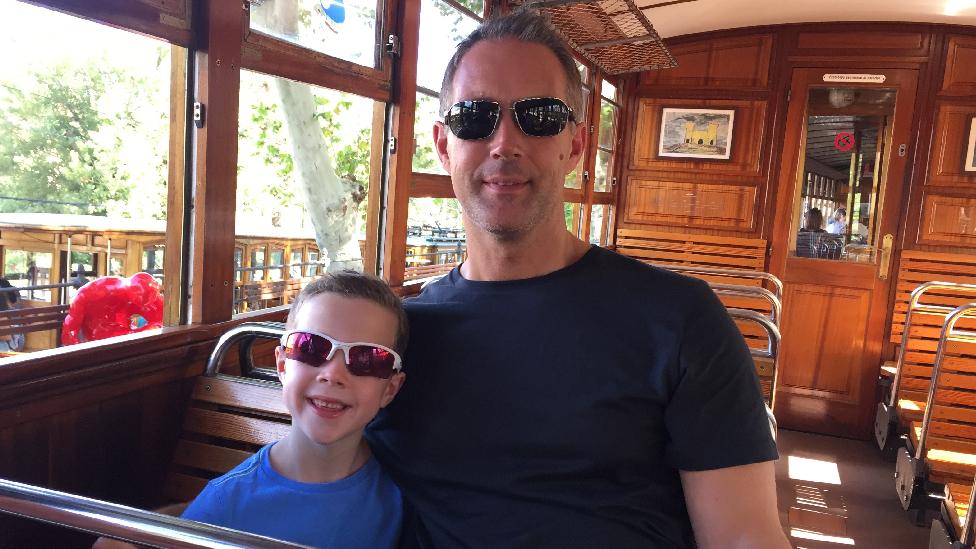
- Published5 April 2021
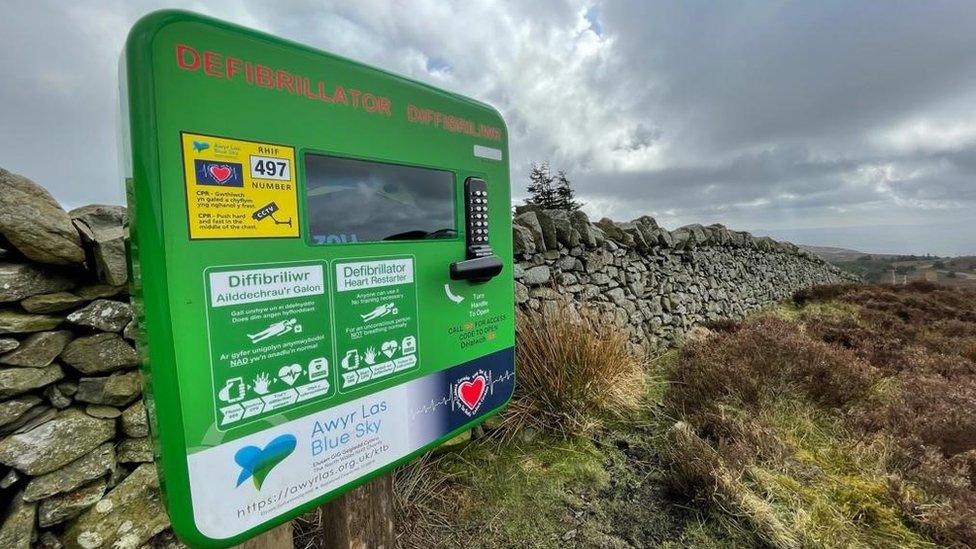
- Published18 July 2021
